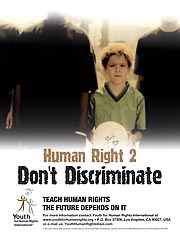|
The Parental Consent Act of 2005
By Elizabeth Cameron
March 1, 2005
The Parental Consent Act of 2005 was introduced into the House of Representatives recently by Representative Ron Paul of Texas. The purpose of the bill, designated “House Resolution 181”, is to “prohibit the use of Federal funds for any universal or mandatory mental health screening program.” It would also prohibit the Federal funding of any agency that uses the refusal of a parent to consent to mental health screening for his child as a sole criterion for a charge of child abuse or educational neglect.
To explain how the need for such legislation came to pass and what risk is posed to our civil liberties, a bit of background is in order. In April, 2002, President Bush signed Executive Order 13263, which established the “President’s New Freedom Commission on Mental Health.” The purpose of the Commission was to study the mental health service delivery system in the country, and to recommend improvements that would “enable adults with serious mental illnesses and children with serious emotional disturbances to live, work, learn and participate fully in their communities.”
The Commission conducted the study, and in July 2003, delivered its Final Report, entitled “Achieving the Promise: Transforming Mental Health Care in America.” This report called for a sweeping transformation of the nation’s mental health care delivery system, including expansion and coordination of mental health service facilities, promotion of the importance of seeking treatment, and screening for mental disorders “across the life span” -- including in primary and secondary schools and primary health care facilities -- with ample connection to treatment and supports.
The report seems to assume that mental health experts have the solutions to mental affliction well mapped out, needing only sufficient Federal funding to put those solutions in place. For example, the report states that “…the recommendations we propose can improve the lives of millions of our fellow citizens now living with mental illness. The benefits will be felt across America in families, communities, schools, and workplaces” and “for consumers of all ages, early detection, assessment, and links with treatment and supports will help prevent mental health problems from worsening.”
However, a growing number of mental health critics have noted that the more embedded the current mental health industry becomes in our culture (with the attendant increase in the use of psychoactive drugs), the worse conditions become for children and families.
To help protect families and children from the potential for abuse that mandatory mental health screening would engender, and the attendant dangers to both their well-being and civil liberties, Rep. Paul, a recognized advocate for human rights, offered an amendment to an omnibus spending bill in late 2004 that would have prohibited funding of any program of mandatory mental health screening for schoolchildren.
The amendment failed. Historian and political analyst Dr. Dennis Cuddy, in an online essay entitled “Mental Health, Education and Social Control, Part 5”, noted that “Kent Snyder, executive director of the Liberty Committee, founded by Rep. Paul, remarked: ‘We believe the drug companies and the psychiatric establishment convinced Senators Arlen Specter and Bill Frist to block it.’”
Despite failure of the amendment, response to Rep. Paul’s office was overwhelming and positive and when the new Congress convened in January, the first bill he introduced was HR 181, “Parental Consent Act of 2005.”
The bill highlights concerns over the desirability and efficacy of current mental health treatments. It cites reports and industry statements that run counter to the Commission’s confident effusions on the workability of current therapies, and addresses as well a crucial issue of civil liberty: that parents have a right, affirmed by the Supreme Court, to direct the education and upbringing of their children. (The full text of the bill may be found at http://www.theorator.com/bills109/hr181.html.)
Proponents of the bill argue that connecting the Federal purse to the evaluation and treatment of mental problems is a dangerous step that advances opportunities for widespread violation of civil rights. At this writing, HR 181 sits in three committees: Education and Work Force, Ways and Means and Energy and Commerce. Rep. Paul’s legislative aide advises that getting the bill to the floor for a vote is affected by public demand. For additional information about the progress of the Parental Consent Act of 2005, see http://www.thelibertycommittee.org/update02.02.05.htm"
Ms. Cameron lives and writes at a small farm in Illinois. Much of her non-fiction writing focuses on issues that affect American liberty and human rights.
|



